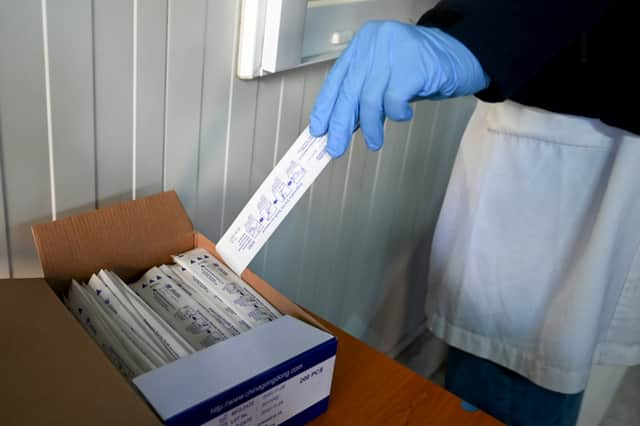Whooping cough: Contagious 100-day cough that's rapidly spread across the UK - what are its symptoms


Whooping cough cases are spiking in the UK as more than 700 people have been affected in England and Wales between July and the end of November, according to data from the UK Health Security Agency (UKHSA)
According to the Sun, that figure has risen dramatically from 217 over the same period last year. Cases are high in the south-east and north-west of England, as well as the West Midlands and health ministers have urged pregnant women to get vaccinated to protect their babies.
Advertisement
Hide AdAdvertisement
Hide AdWhat is Whooping cough?
According to NHS Inform, Whooping cough, also known as pertussis, is a highly contagious bacterial infection of the lungs and airways which can cause repeated coughing bouts that can last for 2 to 3 months or more and can make babies and young children in particular very ill.
Whooping cough is spread in the droplets of the coughs or sneezes of someone with the infection. The first symptoms of the infection are:
- runny nose
- red and watery eyes
- a sore throat
- slightly raised temperature
Intense coughing bouts begin about a week later, lasting just a few minutes and are more common at night.
The coughing brings up thick mucus and may be followed by vomiting. Between coughs, you or your child may gasp for breath which may cause a ‘whoop’ sound, although not everyone has this.
Advertisement
Hide AdAdvertisement
Hide AdThe strain of coughing can cause the face to become very red, and there may be some slight bleeding under the skin or in the eyes. Young children can sometimes briefly turn blue (cyanosis) if they have trouble breathing – this often looks worse than it is and their breathing should start again quickly.
A person with whooping cough is infectious from about 6 days after they were infected – when they just have cold-like symptoms – until three weeks after the coughing bouts start and antibiotics are given to reduce the time someone is infected.
People who’ve had whooping cough for more than 3 weeks won’t normally need any specific treatment, as they’re no longer contagious and antibiotics are unlikely to help.
Liann Brookes-Smith, interim director of public health for Sandwell Council, said: "Whooping cough can lead to serious ill health for infants. However, it is preventable in most cases. The vaccine ensures babies have high levels of protection against this dangerous illness."
Pregnant mothers are able to get the shot for free at their local GP surgery, with only one dose required.
Comment Guidelines
National World encourages reader discussion on our stories. User feedback, insights and back-and-forth exchanges add a rich layer of context to reporting. Please review our Community Guidelines before commenting.
